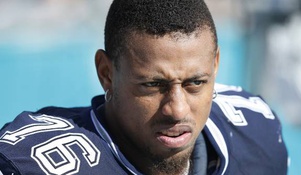Opinion: Five 1970's stars that changed Basketball.
The 70's are, personally, the most intriguing era of basketball. The legendary rivalry of Russell and Chamberlain created a void, a void that was filled in, possibly, the most captivating way imaginable. Two different leagues with two different styles of play, and slightly different rules, were at the forefront of the basketball. The NBA was only 24 years old in 1970, leaving upstart leagues to try and challenge them throughout their infancy. The only (somewhat) successful league was the ABA. The ABA challenged themselves to make their version of basketball more exciting than that of their more popular counterpart. And it worked. Well, kind of. They implemented the three-point line, a concept created by the ABL a few years prior, a slightly (six seconds) longer shot clock and a beautiful red, white and blue ball that's known as the "money ball" in the three-point contests of the modern NBA. Another important rule the ABA pioneered is the one-and-done NBA Draft eligibility rule (originally the Spencer Haywood Hardship Rule), while the NBA forced players to wait 4 years after high school graduation before they were eligible. This allowed the ABA to acquire young talent before the NBA. Even with the innovation of the ABA, it wasn't enough to keep up financially and a merger occurred prior to the 1976-1977 season. This led to the introduction of the three-point line in the NBA as well as the slam dunk contest, the drafting of underclassmen, and a majority of ABA stars joining the NBA. These are five of the stars that influence how we play/watch/analyze basketball today.
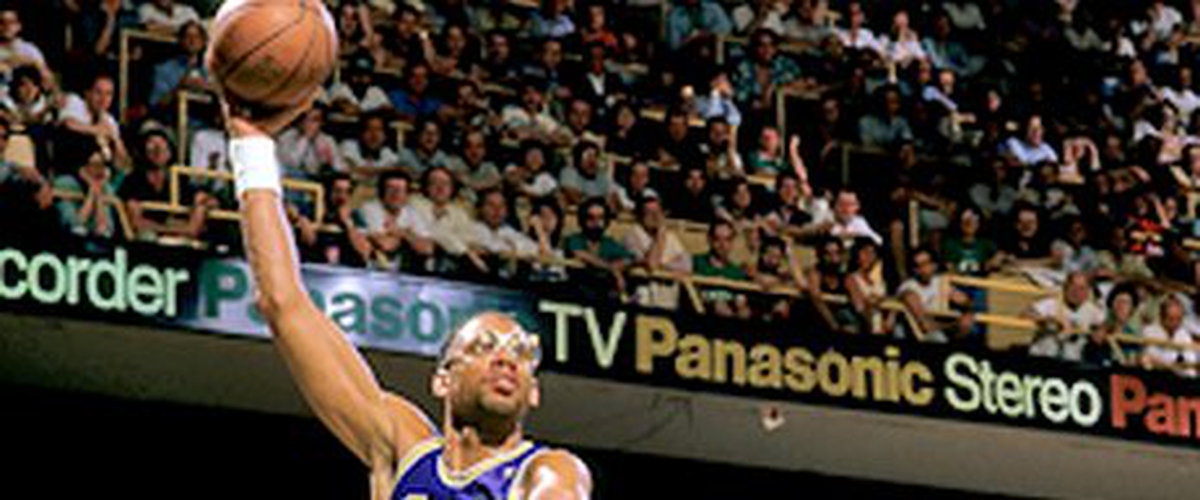
1. Kareem Abdul-Jabbar: The list is in no particular order, so lets get the obvious ones out of the way first. The post-oriented players of the early NBA were known more for their size and power than their skill and finesse. Kareem was the first to truly meld both of those things into one and influenced (and mentored) many players that have come and gone in the NBA. He was so dominant, the NCAA removed dunking for 10 years. It didn't stop Kareem, then known as Lew Alcindor, from winning three consecutive NCAA National Championships and three consecutive Tournament MVPs to boot. He went on to win 6 NBA MVPs and 6 NBA Championships, as well as recording the most points in NBA history while ranking in the top ten in field goal percentage. His patented "Skyhook" is one of the most popular and replicated moves in NBA history.
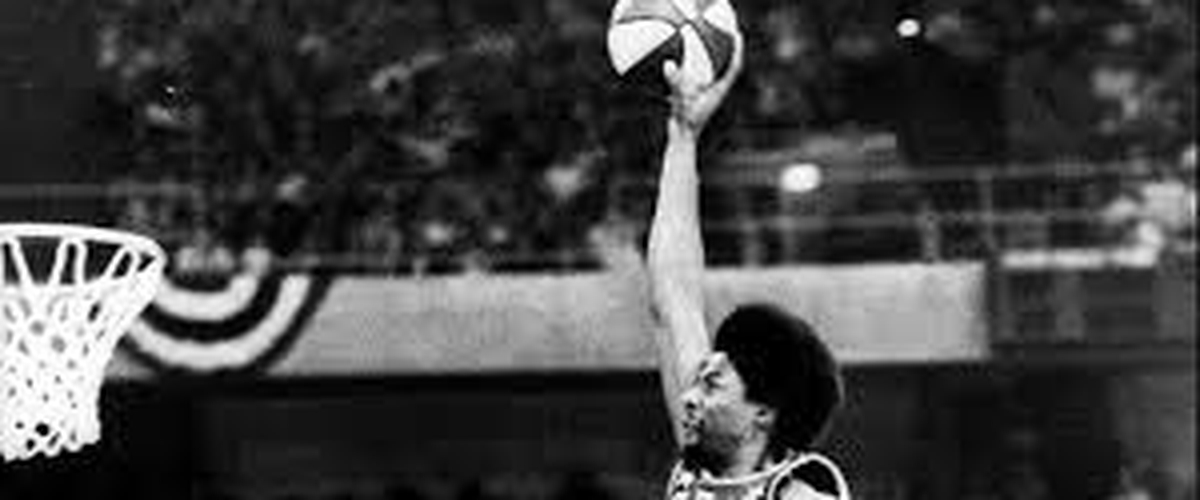
2. Julius Erving: "Doctor J" is arguably one of the most influential players in basketball history. Erving left college early due to the Spencer Haywood rule and started his career in the ABA, where he dominated immediately, winning ABA titles with the New York Nets in 1974 and 1976. But it wasn't until the ABA Slam dunk Contest in 1976 that he was able to show off his insane athleticism to a huge audience. He made the free-throw line dunk and "slam" dunks mainstream, leading the way for players like Michael Jordan and Dominique Wilkins to grow the dunk contest in years to follow. He also possesses some of the greatest highlights in NBA history, including dunking over the great Bill Walton in the 1977 NBA Finals, the "rock the cradle" over Michael Cooper in 1983 and the infamous baseline move in the 1980 NBA Finals, a move everyone who has ever played basketball has tried to replicate.
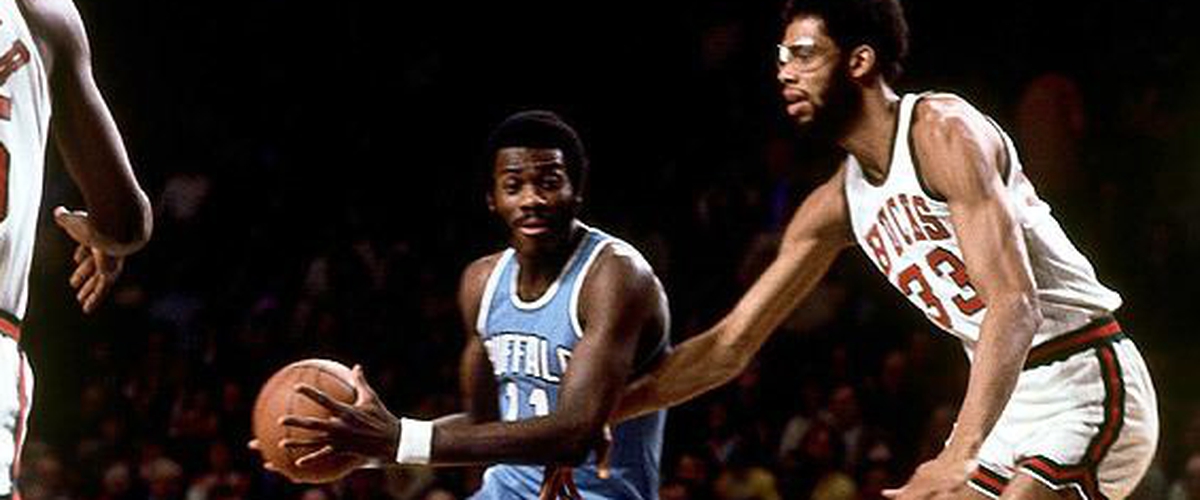
3. Bob McAdoo: McAdoo is one of the most underrated players in NBA history. He was picked 2nd overall by the Buffalo Braves after being granted early eligibility by the NBA. He got off to a quick start, winning Rookie of the Year in 1973. The next three years brought a dominance that had never been seen before in the NBA. During his second season, he averaged 30 points and 15 rebounds per game, a feat that hasn't been accomplished since. He followed that up with 34 points and 14 rebounds per game in a season where he won MVP. His influence comes from his style of play. In an era where big men didn't shoot form the perimeter, McAdoo was more than capable of knocking down the outside shot. At 6'9, He had a uniquely modern game and is credited as being one of the first stretch 4s in NBA history.
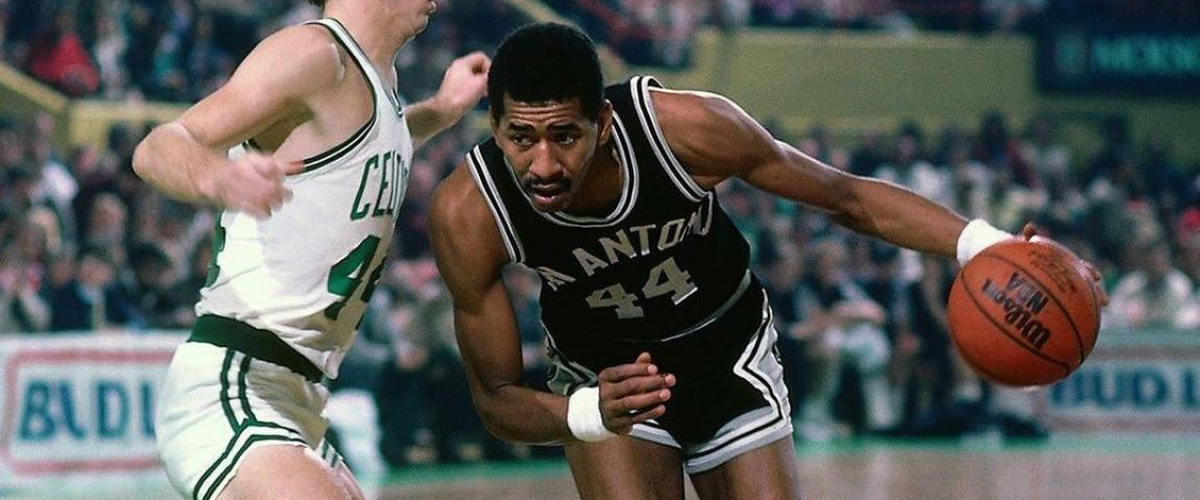
4. George Gervin: "The Iceman" is widely considered one of the greatest shooting guards in NBA history. Gervin started his career in the ABA, but he didn't become a star until after his second NBA season (7th overall), where he averaged at least 26 points over the next seven seasons. A four time scoring champion, Gervin averaged 33 points in 1980 and 32 points in 1982. Gervin earned the nickname "Iceman" due to his cool demeanour and because he would often play without breaking a sweat. Literally. He was also a force on defence, ranking near the top of the all time list for blocks by a guard. But "the Iceman" was really known for the finger roll. Although brought to the NBA by Wilt Chamberlain, the finger roll was a trademark of Gervin, using it any chance he got and even using it from as far away as the free throw line. It has become one of the most popular basketball techniques and this is undoubtedly thanks to Gervin.
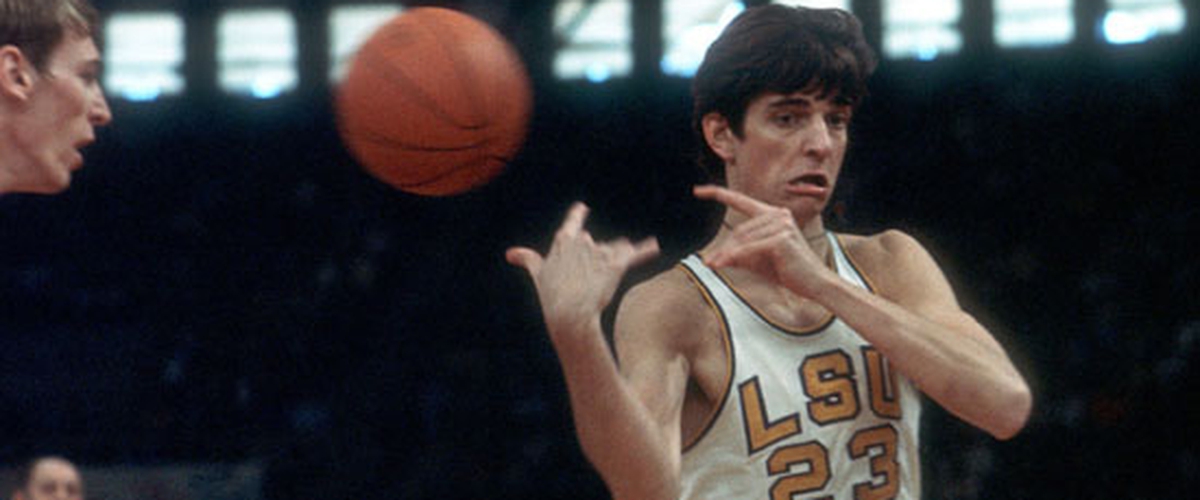
5. Pete Maravich: Alright, this part may be a lttle longer than the rest. "Pistol" Pete is my favourite basketball player of all time. He was years, nay, decades ahead of his time. His ability to handle the ball and his perimeter shooting made it seem like he was from the future. He is the current leading scorer (by over 400 points, and in 23 less games) in NCAA history, averaging 44 points per game in only 3 seasons. What makes this feat ridiculously more impressive is that there was no shot clock during this time, which overall decreased scoring out put. Another thing that makes this accomplishment hard to fathom is the fact there was also no three-point line. Former LSU coach Dale Brown had charted all of "Pistol's" shots and calculated that if the three-point line had existed, Pete would've averaged 57 points per game. Although he wasn't able to find the same success in the NBA, he still had a good 8 years as a pro before injuries forced him to retire after only 10 professional seasons. He was a 5 time all-star, made 4 all NBA teams and was the scoring champ in 1977. The legacy of "Pistol's" offensive ability will live on and I firmly believe that he would be a top 3 point guard during any era of the NBA.

